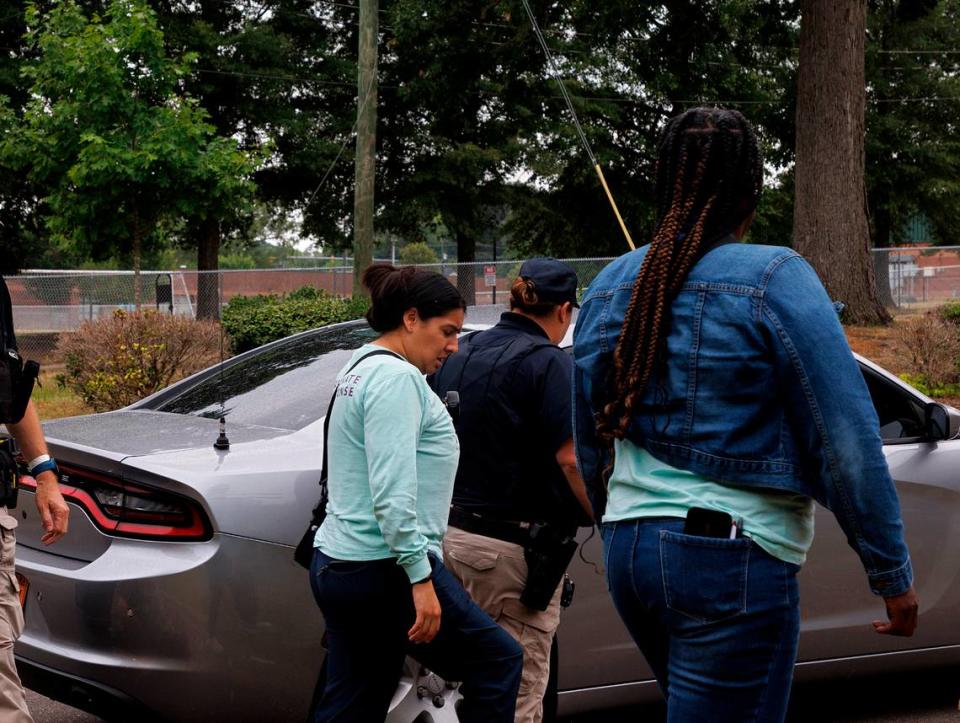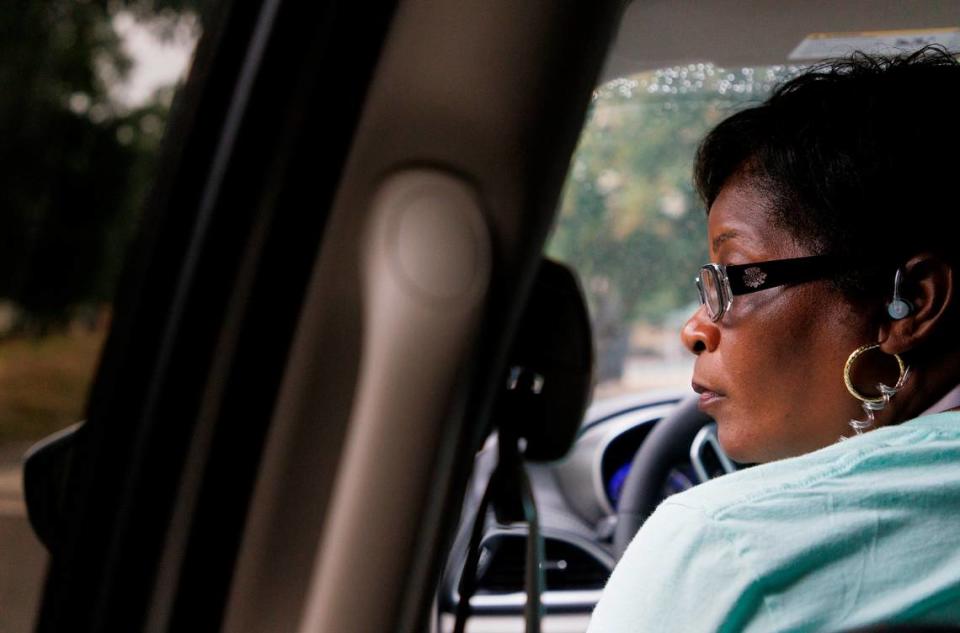On the call with unarmed 911 responders during NC’s life-threatening heat wave
The N&O Summer Desk is a pop-up initiative bringing readers important stories and helpful information during the summer heat. Whether you’re heading to the beach, mountains or backyard, the Summer Desk is here to guide you. Share your story ideas with us at summerdesk@newsobserver.com
How to Use this News:
What should I know? Durham’s HEART program, the first of its kind in the state, sends unarmed responders to certain 911 calls.
What should I share with family and friends? Durham is spending millions to take the program citywide after a trial run.
E. sat on a muddy, black, leather couch under a picnic shelter, her right foot propped on a chair, swollen, cracked and oozing.
“I can’t believe my foot looks like that,” she said, dabbing at it with a paper towel. “This just happened overnight.”
Nine people surrounded her, and they all wanted to help.
Three were HEART clinicians, Durham’s unarmed, social-work specialists who respond to 911 calls in pastel green T-shirts to defuse emergencies by talking with people, handing out supplies and connecting them with services.
“(E.) is one of my favorites,” said clinician Gwen Baggett, who had driven a team to Long Meadow Park on Thursday morning to check on residents in a homeless encampment there.
There were also two paramedics, two neighbors and two police officers who pair with the HEART teams on potentially dangerous calls.
One neighbor walked up to E. — The News & Observer is not using her name to protect her privacy — and pushed a crumpled dollar bill into her palm.
“You need to get that looked at,” he instructed. “Go.”
People had been slipping E. small bits of cash all morning to persuade her to sit down and wait for the ambulance that was now parked a couple of hundred feet away.
But she didn’t want to go.

Life-threatening heat
E. noticed her legs swelling late Wednesday.
It was sweltering outside, and the record-setting heat continued into the night. According to the National Weather Service in Raleigh, 103 degrees was the highest high ever recorded so early in the summer, and 77 degrees set a daily record for the warmest low.
“When you go to sleep at night, you need to raise your feet above your head,” HEART clinician Ivonne Saldana said gently.
“On the [expletive] cement?” E. replied. “I sleep outside.”
It was edema, the paramedics told her, a buildup of fluid in the arms or legs often linked to underlying medical conditions like heart failure. The condition can be aggravated by the heat.
But E. had just been released from the hospital the day before, and she didn’t want to go back.
“I mean, I can’t force you,” an EMT said, “But we can’t treat this.”
HEART team has expanded citywide
HEART stands for Holistic Empathetic Assistance Response Teams. The city started the program, the first of its kind in North Carolina, two years ago this week.
The teams have responded to more than 17,666 mental health crises, trespassing calls, welfare checks and more since then. The city has spent millions to expand the effort citywide 12 hours a day.
E., who is in her 40s, just happened to be walking through the park when the HEART specialists spotted her Thursday.
She is being treated for cancer and looked thin, peer support specialist Tydricka Lewis noticed, persuading her to take some food and supplies as they chatted.

When E. is on her own, she smokes crack to dull the pain caused by her cancer and chemotherapy.
“I do drugs because I feel like my bones ache,” she said.
E. was given fruit snacks and water, a bag filled with personal hygiene products, and another containing clothes and shoes.
“I want you to go to the hospital,” Lewis said, making one final push before leaving the park.
E. shook her head, signed a refusal and the paramedics wheeled the stretcher away.
“Sometimes they don’t always want the help,” Baggett said. “And we’ve gotta respect that.”

But that’s not the last E. will see of the HEART teams. They all know her, and they know she’s vulnerable right now.
“I’m going to come and check on you tomorrow,” Lewis said.
E. nodded.
“OK,” she said.
The News & Observer’s Inside Look takes readers behind the scenes to illuminate the people and places in our community.


